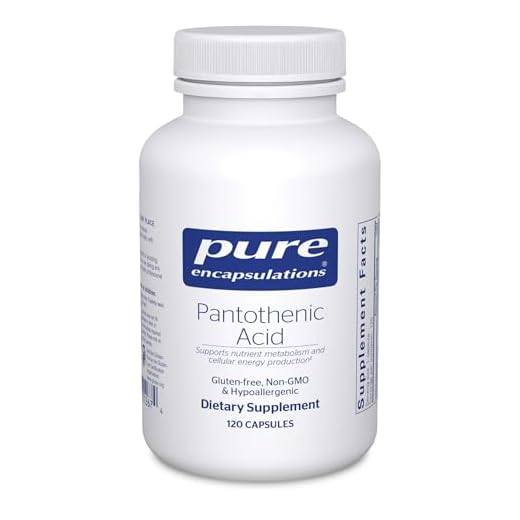







Vitamin B5, or pantothenic acid, plays a significant role in managing acne by reducing oil production and inflammation. It aids lipid metabolism, which helps control excessive sebum secretion, a key contributor to acne severity. Research shows that daily supplementation can lead to significant improvements, with studies reporting up to a 68.21% reduction in acne lesions over 12 weeks. Additionally, B5 enhances skin barrier function, promoting moisture retention while alleviating irritation. For best results, you might consider doses ranging from 500 mg to 4 grams daily. Understanding how it works can empower your skincare decisions even further.
Key Takeaways
- Vitamin B5, or pantothenic acid, supports the production of coenzyme A, essential for fatty acid metabolism and regulating oil production in the skin.
- Clinical studies show that vitamin B5 supplementation can significantly reduce acne lesions and pimples within weeks.
- It aids in lipid metabolism, helping to decrease excessive sebum production, which can exacerbate acne.
- The vitamin's anti-inflammatory properties help calm redness and irritation associated with acne breakouts.
- Daily oral doses of 500 mg to 4 grams are recommended for effective acne management and improved skin health.
Overview of Vitamin B5
Vitamin B5, also known as pantothenic acid, is an essential water-soluble vitamin that plays a significant role in your body's energy metabolism. It's critical for synthesizing coenzyme A (CoA), which is essential for fatty acid metabolism. Additionally, Vitamin B5 is important for adrenal health, as it supports hormonal balance and energy production. You can find pantothenic acid in various foods such as eggs, fish, dairy, whole grains, and avocados. The recommended daily allowance (RDA) is at least 5 mg.
In addition to supporting energy metabolism, Vitamin B5 is particularly relevant for acne treatment. It effectively reduces sebum production, which can help prevent clogged pores and subsequent acne breakouts. Clinical studies have demonstrated that supplementation with vitamin B5 can lead to notable decreases in acne lesions, with some participants experiencing up to a 67% reduction after 12 weeks of use.
Moreover, Vitamin B5 is generally considered safe, exhibiting minimal side effects. Its water-soluble nature makes it unlikely to cause toxicity, even at higher doses. By incorporating this dietary supplement into your routine, you may improve your skin health while benefiting from its essential metabolic functions.
Benefits for Skin Health
Healthy skin is essential for overall well-being, and pantothenic acid plays a significant role in achieving this. Vitamin B5 is instrumental in skin health by aiding in lipid metabolism, which helps to reduce excessive oil production and the severity of acne. Additionally, its role in energy metabolism contributes to overall skin vitality. Clinical studies have shown that supplementation with vitamin B5 can lead to a significant reduction in acne lesions, with some participants experiencing up to a 68.21% decrease in facial acne after just 12 weeks of treatment.
Moreover, pantothenic acid enhances the skin's barrier function, promoting moisture retention and minimizing irritation, which can alleviate symptoms associated with acne. Its anti-inflammatory properties help calm redness and irritation, contributing to an overall improved appearance for those suffering from acne.
Research suggests that daily oral doses of vitamin B5, typically ranging from 500 mg to 4 grams, are effective in managing acne and promoting healthier skin. By incorporating this essential nutrient into your routine, you can enhance your skin health and potentially see a marked improvement in your acne condition.
Mechanisms in Acne Management
When it comes to managing acne, understanding the underlying mechanisms is essential. Vitamin B5, also known as pantothenic acid, plays a critical role in lipid metabolism, which is key for breaking down fatty acids. This process helps reduce sebum production, leading to less oily skin and fewer acne breakouts. A deficiency in vitamin B5 can stem from an unbalanced diet, which may exacerbate acne issues. Clinical studies indicate that supplementation with pantothenic acid can considerably lower acne lesions; one study reported a remarkable 68.21% reduction in facial acne after just 12 weeks of daily intake.
The deficiency theory suggests that low levels of vitamin B5 can lead to problems in fat digestion, resulting in increased sebum production that clogs pores and worsens acne. Additionally, pantothenic acid possesses anti-inflammatory properties, which can soothe redness and irritation linked to acne, thereby promoting overall skin healing and enhancing skin barrier function.
Furthermore, regular intake of vitamin B5 is associated with improved hydration levels in the skin, reducing dryness and roughness. This not only supports skin health but may also decrease the occurrence of acne. Understanding these mechanisms can empower you to make informed decisions about managing your acne effectively.
Research Findings
Recent research underscores the effectiveness of pantothenic acid in acne management, providing compelling evidence of its benefits. Clinical studies have shown that vitamin B5 supplementation can lead to a significant reduction in acne lesions. For instance, one study reported a remarkable 68.21% reduction in lesions after 12 weeks of treatment. In another 8-week study, participants experienced a 50% reduction in acne pimples with daily doses of pantothenic acid, particularly those with mild to moderate acne vulgaris.
The mechanism behind these improvements involves the formation of coenzyme A (CoA), essential for lipid metabolism and effective at reducing sebum production. This reduction in sebum helps minimize the occurrence of acne lesions. Additionally, participants taking pantothenic acid reported enhanced quality of life, reflected in improved Dermatology Life Quality Index (DLQI) scores.
Evidence suggests that daily doses ranging from 500 mg to 4 grams can effectively decrease acne severity, although individual responses may vary. These findings highlight the potential of vitamin B5 as a valuable tool in managing acne, making it an area worth considering for those seeking effective treatments.
Recommended Dosage
To effectively manage acne with pantothenic acid, recommended dosages typically range from 500 mg to 4 grams per day. Many clinical studies suggest starting with a lower daily dose of around 250 mg to assess your tolerance before gradually increasing it. Research indicates that doses between 2-4 grams daily can lead to significant acne reduction, with one study reporting a remarkable 68.21% reduction in lesions over an 8 to 12-week period.
Interestingly, some studies show that even lower doses of 150-225 mg per day can be effective for acne management. While pantothenic acid is generally safe, high doses may occasionally cause gastrointestinal discomfort or diarrhea. Consequently, it's wise to increase your dosage gradually to minimize any adverse effects.
Before beginning supplementation, it's important to consult a healthcare provider. They can help determine the appropriate dosage tailored to your individual needs and health status, ensuring you achieve the best results in your acne management journey with vitamin B5. Always prioritize safety and efficacy when considering pantothenic acid supplementation.
Application Methods
Application methods for pantothenic acid in acne management can be categorized into topical and oral forms, each with distinct benefits. Topical products, such as creams or ointments containing Vitamin B5, can be applied directly to affected areas. This localized application may provide immediate benefits by targeting specific breakouts, enhancing absorption on freshly cleaned skin.
On the other hand, oral supplementation offers systemic effects, making it a viable option for broader acne treatment. Common dosages for pantothenic acid range from 500 mg to 1,000 mg daily, and it's advisable to start with lower doses to monitor tolerance. Consistency in your chosen application method is essential; whether you opt for topical or oral forms, regular use will greatly enhance the management of acne symptoms.
Additionally, combining pantothenic acid with other vitamins, like Vitamin B1, can improve absorption and overall effectiveness. Ultimately, understanding the differences between these application methods can help you tailor your skin care routine for best results in acne management.
Safety and Side Effects
When considering pantothenic acid for acne management, it's crucial to be aware of its safety profile and potential side effects. Generally, pantothenic acid is safe and is regarded as a well-tolerated option for treating acne. However, high doses, particularly above 10,000 mg per day, may lead to gastrointestinal discomfort or diarrhea. The recommended starting dosage ranges from 250 mg to 4 grams per day, allowing you to gradually assess your tolerance.
As a water-soluble vitamin, excess pantothenic acid is typically excreted through urine, which minimizes the risk of overdose. While adverse reactions are rare, they can include mild allergic responses or gastrointestinal issues. Consequently, consulting a healthcare provider before starting supplementation is advisable, especially if you have underlying health conditions or are on other medications.
If you suspect a vitamin B5 deficiency, it's important to address this with professional guidance. By doing so, you can make certain that you're taking an appropriate amount without risking side effects. Overall, with proper management, pantothenic acid can be a beneficial addition to your acne treatment regimen.
Conclusion
Incorporating vitamin B5 into your skincare routine could be a game-changer for acne management. With its proven benefits for skin health and mechanisms targeting excess oil production, it may help you achieve clearer skin. Isn't it worth considering a natural approach to tackle acne? While research supports its efficacy, always consult a healthcare professional before starting any new supplement. Remember, a holistic approach often yields the best results in achieving and maintaining healthy skin.






